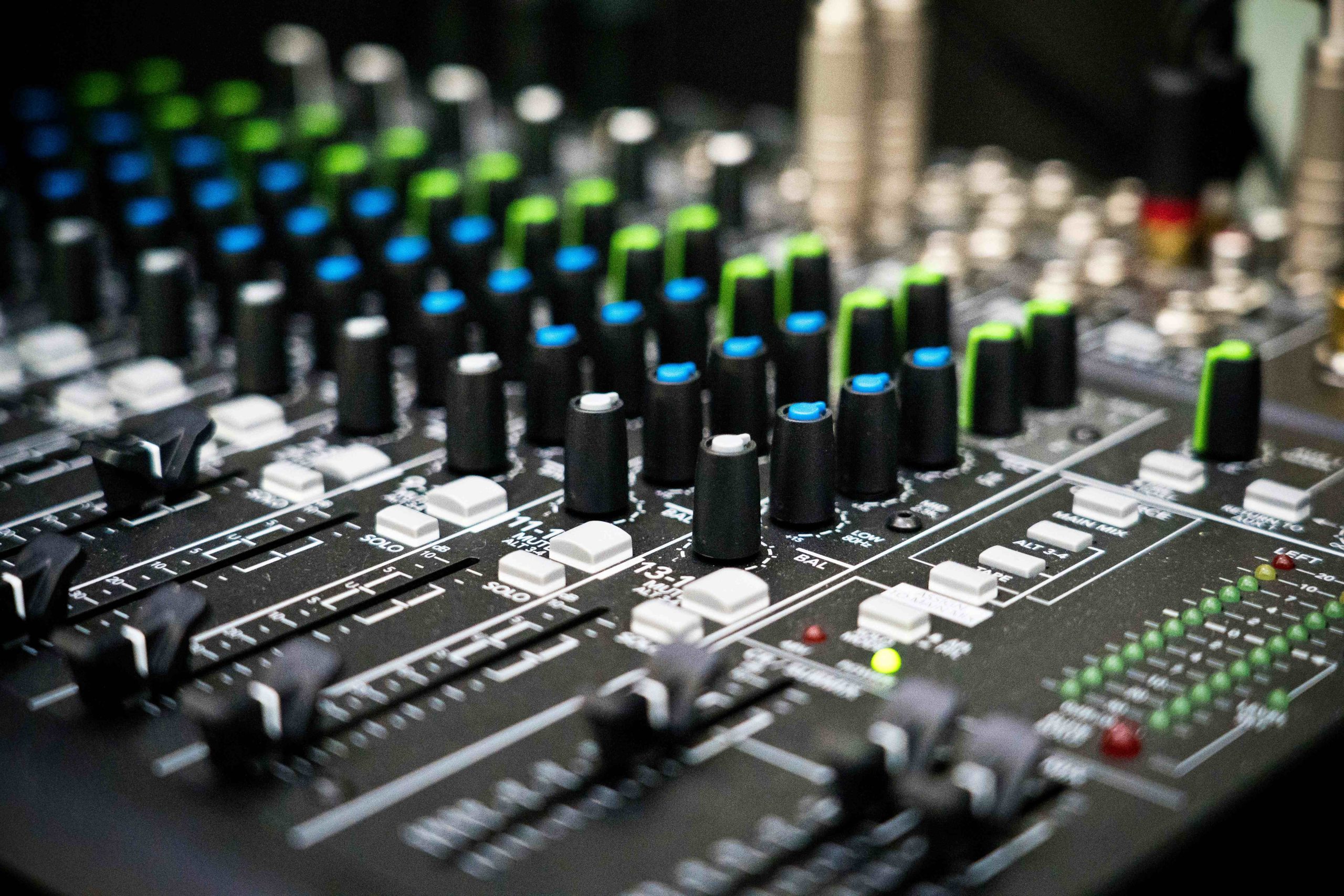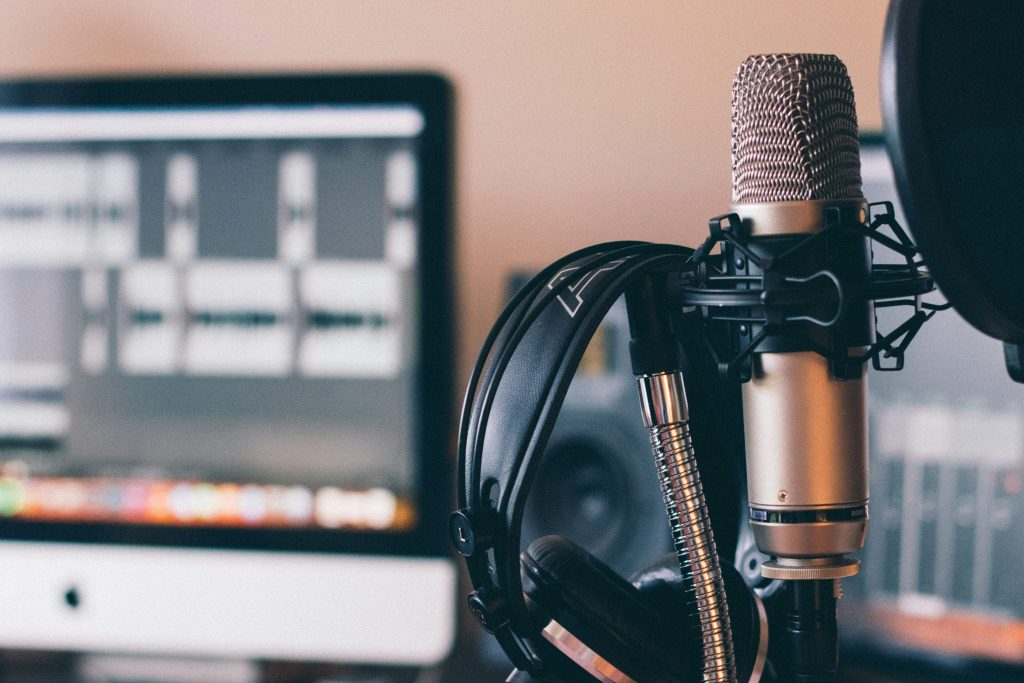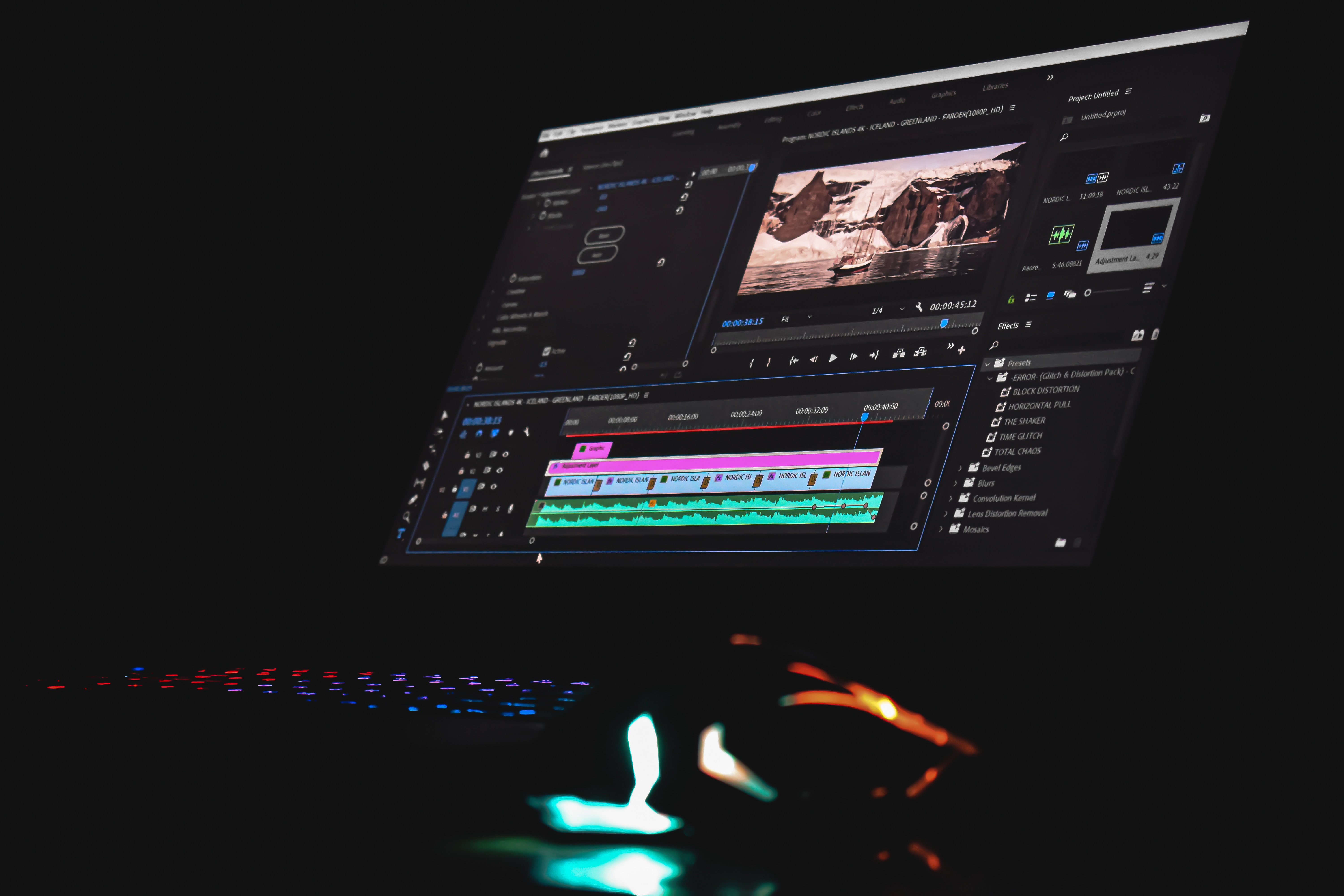What is audio production? Audio production is the process of taking a piece of audio — most significantly, music, but also things like dialog and sound effects — from start to finish.
There are multiple steps involved in audio production, all leading to the final goal: high-quality audio for whatever project you’re working on.
The Importance of Audio Production for Your Content
Audio production is important for music, movies, videos, video games, and any other type of media that involves audio. Audio can make or break the viewer or listener’s experience. In music, audio is all there is. In visual media, audio moves the story along, creates realistic settings, and evokes emotions like sorrow or fear. Audio that’s rough, too quiet, too loud, or unclear can frustrate listeners.
Depending on the type of audio and what it’s being used for, you may have hundreds of moving parts and hundreds of hours put into producing the audio. This includes steps like editing, mixing, mastering, and more.
This process can be so intensive that many audio engineers, audio producers, and sound engineers choose to get a degree in audio production. There are several of these degree programs offered around the country.
Key Stages of Audio Production
Audio production isn’t a one-step process. There are several key stages of audio production:
- Recording
- Editing
- Mixing
- Mastering
In digital audio production, there are multiple tools and software options you can use to make production run smoothly.
Recording
Depending on the project and the piece of audio being recorded, the recording process can be very simple or very, very complex.
For larger-budget projects, recording usually takes place in recording studios, which you specifically set up to capture audio at the best quality possible. Smaller-budget projects may use homemade recording booths.
During the recording session, you'll capture audio so it can go through the more technical aspects of audio production.
Editing
Once you record the audio, you can edit it. Editing can involve several steps, and one of the first ones is choosing the right “take” or version to use.
When an actor is recording lines for a movie or video, they may say the lines several times in different ways. Likewise, a band recording a song may record different parts of the song with slight differences. Additionally, some takes may just sound better.
During editing, you'll choose which version is going to be the final version. But often, your work isn’t done there. you may also:
- Splice all the takes together to create a final track
- Remove background noises, including breaths and pops
- Adjust the timing
- Add audio effects
During this stage of sound production, you may have the liberty to get creative with the sound by adding things like delay or reverb or by doing things such as stretching the audio or pitching sounds. However, it will depend on the particular project.

Mixing
Next, the audio recording goes through the mixing stage. This stage is more technical than the editing stage and involves ensuring all parts of the audio fit together smoothly.
In music, this may mean making sure all the individual parts of a track fit together. In visual media, this may mean making sure dialogue, sound effects, and music all work together and balance.
Mixing often involves:
- Balancing levels
- Compressing
- Enhancing harmonics
- Equalizing
Mastering
Mastering is often the final step of audio and sound production. Mastering is the stage where you fine-tune the quality of the sound.
Mastering may include steps like:
- Adjusting volume
- Balancing elements
- Creating consistency
- Fine-tuning elements
The steps involved in this stage can vary depending on the type of audio and type of project. However, the overall goal is the same: to make sure it sounds good.
Beyond Basics: Post Production
Depending on the project, there can be other, more technical pieces in audio post-production. What is audio post-production? It’s additional steps you may need to take to make a piece of audio perfect.
Sound Design
Sound design is the overall term used to describe creating audio and sound for all types of media. It includes the steps above but may also include additional steps.
There are five common design elements used in sound design:
- Ambiance: the sounds or noises that set the scene and tone
- Audio effects: created sounds that don’t exist in reality
- Foley sounds: subtle sound effects
- Music: In visual media, influences mood and sets tension
- Voice-over: the voice of a narrator who guides the viewer through the media
Foley
As mentioned above, Foley is the term used for subtle sound effects. These everyday sounds help make the visual media more realistic. This includes things like footsteps, crunching leaves, or rustling fabric.
You may be able to find pre-recorded stock foley sounds, or you may need to create your own.
Music Production
Music production is the process of producing music specifically. This is done by music producers and record producers who work in the music industry.
Music production can be very different than general audio production. It often includes a stage or two at the beginning: composing the piece of music and writing the lyrics, if applicable. This step may include choosing instruments and chord progressions and creating the overall structure of the music.
In some cases, these stages may be some of the longest and require intense collaboration between members of a musical group, like a band or orchestra.
The mastering stage can look different in music as well. For example, mastering an album involves ensuring consistency through every song. After the music has been through the mastering stage, it’s ready for release as an MP3, CD, vinyl, or any other way you may listen to music.
Because music production can be so intensive, there are many degree programs specifically geared toward training students in producing music.
Elevate Your Production Quality With Royalty-Free Music
Audio production can be a long and laborious process, but we can help. At StockMusic.net, we offer a massive library of royalty-free stock music and sound effects to slice your audio production time in half. Contact us today for more information.




